Dr. Bastian Jan "Bart Jan" Spruyt (born 29 January 1964, in Ridderkerk) is a Dutch historian, journalist and conservative writer.
Dr. Bastian Jan "Bart Jan" Spruyt (born 29 January 1964, in Ridderkerk) is a Dutch historian, journalist and conservative writer.
Spruyt grew up in Rotterdam, Netherlands, and studied history, theology, and law at Utrecht University and Leiden University. He is a practising Calvinist of the Hersteld Hervormde Kerk denomination, also known as the Restored Reformed Church. Spruyt obtained his M.A. in Renaissance and Reformation History in 1990 from Utrecht with the highest honors.
Spruyt was a graduate student at Leiden University from February 1991 through February 1994 and obtained a doctorate in February 1996 on an English-language dissertation entitled 'Cornelius Henrici Hoen (Honius) and his Epistle on the Eucharist (1525): Medieval Heresy, Erasmian Humanism and Reform in the Early Sixteenth-Century Low Countries', which was supervised by Prof. Posthumus Meyjes (Leiden) and the late Prof. Heiko A. Oberman (Arizona). A book version of this dissertation was published in 2006 by E. J. Brill in their series 'Studies in Medieval and Reformation Traditions: History, Culture, Religion, Ideas'. Spruyt published scholarly papers in such journals as the Dutch Review of Church History, Sixteenth Century Journal, Wolfenbütteler Renaissance Mitteilungen, English Historical Review, Quaerendo , and Reformatorica. He's currently an assistant professor at the Free University of Amsterdam, where he teaches ecclesiastical history.
From 1994 to 2002, Spruyt worked as a journalist for the Reformatorisch Dagblad, the sixth largest Dutch daily newspaper, with a mainly Protestant readership and an explicitly Calvinist editorial line. He covered Dutch politics and the foreign desk. His last position was from 2000 to 2002 as chief political editor and commentator of the newspaper, working from The Hague. In the second half of 2006, he picked up journalistic work again.
As one of the leading voices of intellectual conservatism, Spruyt was instrumental in founding the Edmund Burke Foundation, the Dutch conservative group, in the second half of 2000. Together with conservative activist Joshua Livestro, Spruyt became the Foundation's director when the Foundation opened up its own offices in The Hague. Livestro soon left the Foundation and Spruyt was managing director for three years. In that period, he openly sought to emulate the American conservative movement, taking the Intercollegiate Studies Institute, The Heritage Foundation, and the American Enterprise Institute as his leading examples. Under his leadership, the Foundation worked to make the legacy of such conservative politicians as Ronald Reagan relevant to the Dutch political climate. To that end, the Burke Foundation called for significant budget cuts, tax cuts (especially of income tax) including the implementation of a flat tax, health care reform, and welfare reform. The Foundation also defended the Bush administration's war on terror, argued for increased defence spending, stronger American-European links, and played a major role in the Dutch campaign against the European Constitution in June 2005. The Foundation also had a more philosophical and student-focused program. During parts of 2004 and 2005 Spruyt, among other prominent Dutch intellectuals, had to hire private security services, given the bad political climate in the Netherlands following the murder of Theo van Gogh.
When Dutch politician Geert Wilders started a conservative party in 2004, Spruyt supported that move, hoping that it could spur a movement inspired on the basis of American conservatism. From January through August 2006, Spruyt advised Wilders on political strategy. In August, however, he announced that he was disappointed with the development of the nascent Wilders party and would not stand as a parliamentary candidate on the Wilders slate. Spruyt believed that Wilders should have formed a broad conservative front with other politicians like Marco Pastors (of Leefbaar Rotterdam) and Joost Eerdmans (of the LPF). But Wilders did not want to cooperate, the Dutch right splintered, and Spruyt decided to end his brief political career after six months. Spruyt has since criticized Wilders for being too radical.
After leaving politics, Spruyt entered a life as an independent consultant, journalist, teacher, writer and speaker. Spruyt continues to contribute widely to Dutch magazines and newspapers on a broad array of topics. In April 2006, Spruyt delivered the second Roosevelt Study Centre Lecture in Transatlantic Relations in Middelburg on the topic "The Defence of the West: Neoconservatism and the continuing need for new Churchills." He blogs at Bart J. Spruyt Blog. He writes for HP De Tijd and Binnenlands Bestuur. In 2008, he was named the successor of Pim Fortuyn as the columnist for Elsevier , a Dutch weekly magazine. He continues to be chairman of the Edmund Burke Stichting.
In September 2009, Spruyt began teaching civics and history at Wartburg College's Guido de Brès school in Rotterdam.
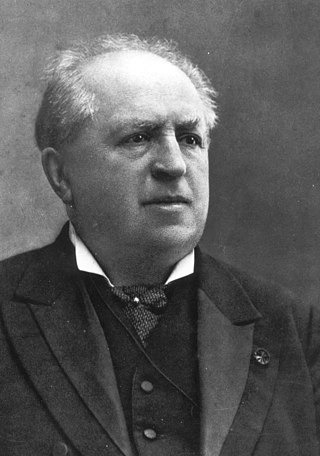
Abraham Kuyper was the Prime Minister of the Netherlands between 1901 and 1905, an influential neo-Calvinist pastor and a journalist. He established the Reformed Churches in the Netherlands, which upon its foundation became the second largest Reformed denomination in the country behind the state-supported Dutch Reformed Church.
The Randstad is a roughly crescent- or arc-shaped conurbation in the Netherlands, that houses almost half the country's population. With a central-western location, it connects and comprises the Netherlands' four biggest cities, their suburbs, and many towns in between, that all grew and merged into each other. Among other things, it includes the Port of Rotterdam, the Port of Amsterdam, and Amsterdam Airport Schiphol. With a population of approximately 8.4 million people it is one of the largest metropolitan regions in Europe, comparable in population size to the Rhine-Ruhr metropolitan region or the San Francisco Bay Area, and covers an area of approximately 11,372 km2 (4,391 sq mi). The Randstad had a gross regional product of €397 billion in 2017, making it the third most productive region in the European Union, behind the Paris metropolitan area and the Rhine-Ruhr metropolitan region. It encompasses both the Amsterdam metropolitan area and Rotterdam–The Hague metropolitan area. It is part of the larger Blue Banana megalopolis.
The Edmund Burke Foundation is a conservative group based in The Hague, the Netherlands.

Femke Halsema is a Dutch politician and filmmaker. On 27 June 2018, she was appointed Mayor of Amsterdam and began serving a six-year term on 12 July 2018. She is the first woman to hold the position on a non-interim basis. She previously was a member of the House of Representatives for the leftist green party GroenLinks from 1998 to 2011, and served as the party's parliamentary leader from 2002 to 2010.
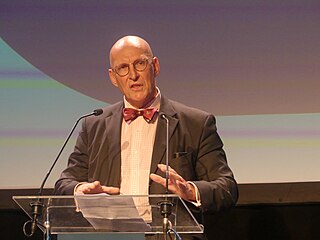
Andreas Antonius Maria Kinneging is Professor of Legal Philosophy at the University of Leiden, and a conservative philosopher in the Netherlands.

The history of the Calvinist–Arminian debate begins in early 17th century in the Netherlands with a Christian theological dispute between the followers of John Calvin and Jacobus Arminius, and continues today among some Protestants, particularly evangelicals. The debate centers around soteriology, or the study of salvation, and includes disputes about total depravity, predestination, and atonement. While the debate was given its Calvinist–Arminian form in the 17th century, issues central to the debate have been discussed in Christianity in some form since Augustine of Hippo's disputes with the Pelagians in the 5th century.

Giles Scott-Smith is a Dutch-British academic. He is a professor of transnational relations and new diplomatic history at Leiden University and serves as the dean of Leiden University College The Hague.
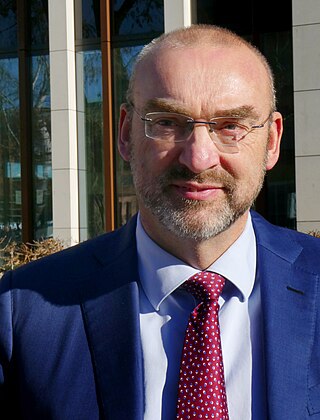
Roelof (Roel) Kuiper is a Dutch historian, philosopher, ideologue, politician and university professor. He was from 2007 to 2019 a member of the Dutch Senate, and is professor of Reformational philosophy at the Erasmus Universiteit Rotterdam in the name of the Association for Reformational philosophy, teaching Society Issues at the Christelijke Hogeschool Ede and Gereformeerde Hogeschool Zwolle and Political and social philosophy at the Vrije Universiteit Amsterdam (VU).

The Young Democrats is a social-liberal youth organisation in the Netherlands, founded in 1984. Although independent, it is affiliated with the social-liberal Democrats 66 party. With over 5,000 members, it is the largest political youth organisation of the Netherlands.
Traditionalist conservatism, often known as classical conservatism, is a political and social philosophy that emphasizes the importance of transcendent moral principles, manifested through certain posited natural laws to which it is claimed society should adhere. It is one of many different forms of conservatism. Traditionalist conservatism, as known today, is based on Edmund Burke's political views as well as the views of Joseph de Maistre. Traditionalists value social ties and the preservation of ancestral institutions above what they perceive as excessive individualism. One of the first uses of the phrase "conservatism" began around 1818 with a monarchist newspaper named "Le Conservateur", written by Francois Rene de Chateaubriand with the help of Louis de Bonald.
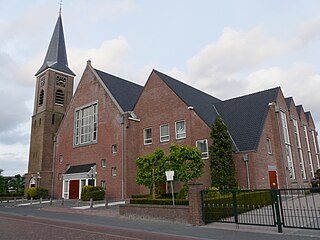
The Restored Reformed Church is a Calvinist denomination in the Netherlands. It was founded in 2004, from congregations which made up the orthodox-reformed wing of the Dutch Reformed Church; they had previously been part of groups named Het Gekrookte Riet and the still existing Gereformeerde Bond within the Dutch Reformed Church. The Church has grown steadily since its founding.

Daniel de Superville was a Dutch physician who in 1742 founded the University of Erlangen in Germany. He served as chancellor of the university until 1748. De Superville also wrote several treatises on anatomy.
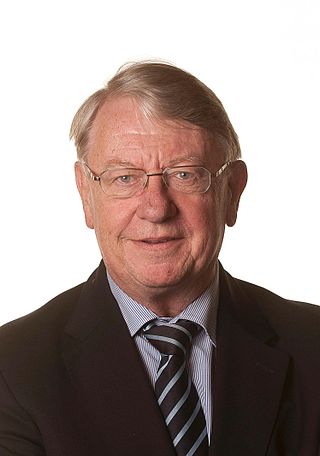
Johannes Stefanus Joseph "Hans" Hillen is a retired Dutch politician of the Christian Democratic Appeal (CDA) party and journalist.
Johannes Gerardus Franciscus (Jan) Veldhuis is a Dutch administrator/governor in the fields of scientific education and research, healthcare and culture, nationally and internationally. His last post was president of Utrecht University, from 1986 until 2003. He still holds various part-time governance positions.

Johannes Wtenbogaert was a Dutch Protestant minister, a leader of the Remonstrants.
The Party for Freedom is a nationalist and right-wing populist political party in the Netherlands. Since the early 2020s, the party has rapidly grown in popularity, gaining significant support for its anti-immigration positions. After the 2023 general elections, it became the largest party in the House of Representatives.
François Vranck, was a Dutch lawyer and statesman who played an important role in the founding of the Dutch Republic.
Marcus Alphons Petrus"Mark"Bovens is a Dutch scholar of public administration. He has been professor of public administration at Utrecht University since 2000. Bovens has been a member of the Scientific Council for Government Policy since 2013.
Louis (Wiep) van Bunge is a Dutch historian of philosophy. He has published mainly on the early Enlightenment in the Netherlands, on Spinoza and on his influence on other thinkers.